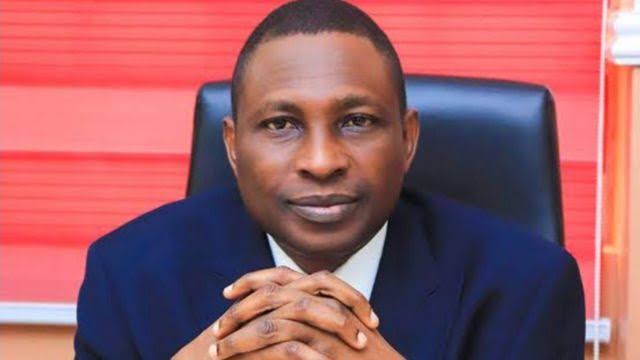The Economic and Financial Crimes Commission (EFCC) has denied reports that its Chairman, Ola Olukoyede, referred to seven out of every 10 Nigerian students as criminals.
The agency’s spokesperson, Dele Oyewale, clarified in a statement on Thursday that Olukoyede, during a recent meeting with Civil Society Organisations, expressed concern about the rising cases of internet fraud amongst youths.
He noted that Olukoyede urged for wider media engagement with youths to counter the allure of cybercrime.
He further stated that intelligence reports suggest that unless the current trend is reversed, seven out of ten Nigerian youths could be involved in cybercrime within the next 10 years.
Oyewale stressed that Olukoyede never directly labelled “seven out of 10 Nigerian students as criminals,” insisting that the EFCC boss’ primary concern remains the mass participation of youths in cybercrime and the need for collaborative efforts to offer them more productive and sustainable alternatives.
Oyewale said the clarification aims to address the misrepresentation of Olukoyede’s concerns and to emphasise his commitment to the well-being and future of Nigerian youths.
The statement read, “The attention of the Economic and Financial Crimes has been drawn to some needless misrepresentation of the concerns of the Executive Chairman of the EFCC, Mr Ola Olukoyede to the rising incidences of internet-related crimes involving youths across the country.
“At a recent meeting with some representatives of Civil Society Organisations that paid him a courtesy visit, he called for wider media enlightenment of youths as a countermeasure against the menace of internet fraud. He did say that reports and intelligence available to him indicated that, unless this trajectory of youth involvement in internet fraud is addressed and reversed, the future of their leadership of our great nation may be threatened and if it continues in the next 10 years, seven out of 10 of our youths may be getting involved in cyber crimes.
“At no time did he say that ‘seven out of 10 Nigerian students are criminals’. His concerns still bother breaking the jinx of the mass indulgence of youths in cyber crimes.
“The EFCC wishes to assure the public that Olukoyede is doubly committed to the progress of Nigerian youths and this underscores his calls for collaborative interventions in offering them more productive and sustainable alternatives.”
We’ve got the edge. Get real-time reports, breaking scoops, and exclusive angles delivered straight to your phone. Don’t settle for stale news. Join LEADERSHIP NEWS on WhatsApp for 24/7 updates →
Join Our WhatsApp Channel










